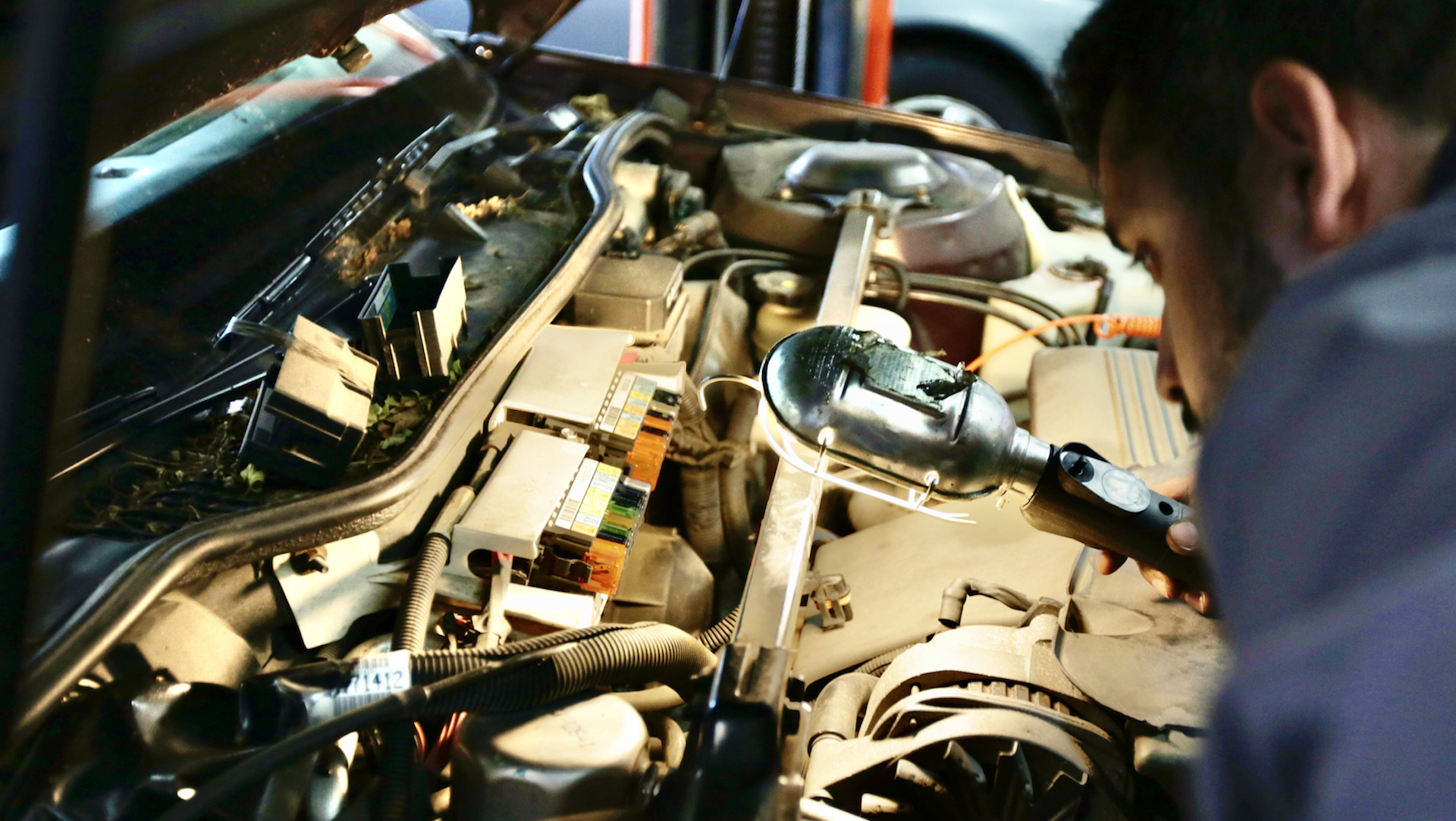

California is a frustrating contradiction in the minds of auto enthusiasts, a motherland streaked with brilliant driving roads and spoiled by hard-hitting regulations. Rightly or not, the Golden State’s rules are seen as stymying aftermarket innovation and punishing vehicle modifications. This news certainly won’t change that impression: starting today, July 19, California will use its mandatory biennial emissions testing to look for vehicles with modified ECU software, and fail vehicles with tunes that haven’t been specifically approved by the state regulators.
Every other year, most cars in California are required to undergo a strict emissions inspection—anything 1976 model year or newer for gas-powered cars, and 1998 MY or newer for diesels. Vehicles less than eight years old are exempt.

These inspections involve bringing the car in question to a state-approved smog testing facility where it will undergo a series of tests to ensure its legality on California’s roads. First is a visual inspection to ensure the vehicle still has all of its factory-equipped emissions components. This means signing off that any factory-issued O2 sensors, catalytic converters, PCV valve, EVAP system, etc. are still present.
Then comes the more stringent part of the test: testing the exhaust gasses. The car is attached to a state-issued testing computer via its OBDII port and set on a roller dyno. An emissions sensor is hooked onto the tailpipe which measures the vehicle’s actual noxious gas output at specific sustained speeds to ensure that the car complies with California’s emission requirements.
If that process wasn’t already strict enough, California’s new testing procedure won’t just measure emission levels and ensure that monitors are set, but will also check to see if any software in the vehicle’s Engine Control Unit (ECU) has been tampered with—more on how this is done later.
Enthusiasts have the most to lose in the scenario, especially the ones looking to squeeze some extra horsepower out of their cars without any other major modifications. Any off-the-shelf tune that wasn’t previously approved by a California Air Resources Board (CARB) Executive Order will automatically fail the Smog Check under the new enforcement.
Used car buyers are also in a bit of a pickle. If the vehicle they purchased happens to have a non-CARB-approved tune, it too will fail—meaning they would have to pay to have their vehicle reflashed to factory software to legally drive it on public roadways.
The impending enforcement change was understandably met with outrage from commenters on Car Bibles, which broke the story last Tuesday, and on Reddit where it was subsequently shared. Consumers who were previously passing Smog Checks without issue will now fail simply because the software doesn’t match a CARB-approved tune—not because it’s producing increased emissions or is any more environmentally impacting since the last test.
As such, some who disagree with the sudden enforcement view it as more of an arbitrary power grab than a move based on facts and supporting evidence.
Meanwhile, CARB’s reminder to consumers is that no regulatory changes have actually been made, meaning that other states that follow CARB’s standards can also choose to enforce such restrictions at any time.

Since 2013, California’s regulatory viewpoint is that a vehicle’s software is part of its factory-equipped emission control devices and that by modifying the software on the vehicle, the owner is tampering with the emission controls just as if they were gutting the car’s catalytic converter.
The biggest change is that the California Bureau of Automotive Repair (CBAR), the agency which oversees the Smog Check procedure, has now officially begun to enforce the already existing regulation.
It seems that consumers may be an unfortunate casualty in California’s ongoing war against polluting automakers and aftermarket companies who willingly violate the EPA’s Clean Air Act or its own approved provisions. CARB views its trust with automakers, specifically, as shattered—something which seemingly stems from the CARB-commissioned study which uncovered Volkswagen’s infamous dieselgate scandal in 2014.
“Since the beginning of computer-controlled vehicles, software has always been an important part of the emissions control system,” a CARB spokesperson told The Drive via email. “So we have always been very clear with industry as to their responsibility to obtain an EO to ensure their modifications are legal for their customers. Once OEMs broke our trust with their software cheating, there was ample notice that we would be using all tools available to ensure everybody was following the rules, including the aftermarket.”
Some aftermarket companies like Cobb and APR tackled this problem head-on, seeking out CARB approvals for their respective software products. However, getting the CARB certification itself is an entire process that may be cost-prohibitive to new companies, or individuals looking to tune their own vehicles.
What this means for the future of motoring in California and other states that adopt CARB’s standards is genuinely unclear. Now the companies unwilling to get on board and their unwitting consumers are seemingly persona non grata.
Aftermarket tunes are going to find their way back into the state and onto the ECUs of non-compliant cars. How California plans to address that moving forward is still unknown, though it seems that the race to a combustion-free future may be the biggest player in ridding the state of offending automobiles.
California’s policy might seem pretty cut and dried, however, the internet (being the internet) is rampant with misinformation on the topic. Facebook groups are being overrun by enthusiasts who are afraid their pre-OBD-II cars are going to fail, and those with off-the-shelf tunes are confused about what to do next.
CBAR put together a list of FAQs, but it isn’t exactly straightforward at getting the info into a human-readable format, which is why we’ve compiled a comprehensive list that you can read here.
Got a tip or question for the author? Contact them directly: rob@thedrive.com